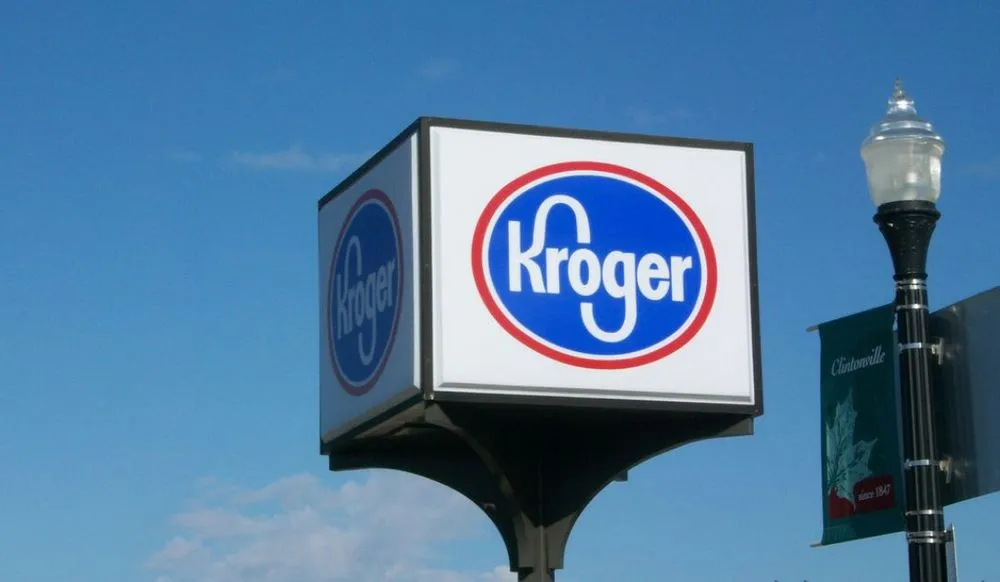Consumer Reports: Kroger using loyalty program to package, sell customer data
A consumer watchdog said Tuesday that one of the country’s largest grocery chains allegedly used data collected from loyalty shoppers to build sometimes incorrect profiles of them and sell their information to other companies.
Kroger, the largest traditional grocery chain in the U.S. by revenue, allegedly gathers detailed and far-reaching consumer data through their loyalty program to make educated guesses about customers’ incomes and willingness to buy expensive brands, according to a report published Tuesday by Consumer Reports.
Consumer Reports says its probe reveals that Kroger’s so-called income predictor also can “differ markedly from reality.”
The investigation found that Kroger is also marketing the data it collects to more than 50 U.S. companies which, if they buy it, are presumably using it for their own data profiling and targeting, Consumer Reports says.
This finding is based on the experience of a Kroger customer in Oregon who used the state’s relatively new data privacy law to force the grocery chain to reveal the data it had gathered about him and to whom it had been disseminated.
He allegedly discovered that his Kroger-generated report was marketed to one of America’s biggest data brokers, tobacco companies, financial entities and a raft of analytics and marketing firms, Consumer Reports says.
Additionally, Kroger marketed the data to a healthcare tech company that collaborates with health insurers and a fintech payments platform involved in processing Supplemental Nutrition Assistance Program subsidies, Consumer Reports says.
It is unclear which, if any, of the companies Kroger marketed the customer data to bought it.
In a statement shared with Recorded Future News, Kroger refuted the report's findings and said "the characterization of widespread pricing concerns is patently false."
“The Consumer Reports allegations boil down to misinformation, reviewing a handful of discrete issues from billions of daily transactions. It in no way reflects the seriousness with which we take our transparent and affordable pricing,” according to the statement.
Harris Teeter and Ralphs stores also fall under the Kroger umbrella, which jointly serves about 63 million consumers.
Kroger has long been at the cutting edge of tracking shoppers with data and has aggressively promoted its loyalty program, leading to 95% of customer transactions being loyalty-based, Consumer Reports says.
In October, it became public that Kroger planned to launch a facial recognition program at its stores.
At the time, Congresswoman Rashida Tlaib (D-MI) said the plans — which appeared to be tied to digital displays — could lead to biased pricing discrimination because of how the technology often inaccurately analyzes minority faces.
The lawmaker worried that Kroger’s rollout of the tech could lead it to individually profile consumers — exactly what Consumer Reports says is now happening.
A Kroger spokesperson said in a statement at the time that the company’s mission is to build a “foundation of lowering prices to attract more customers.”
Prior to Tlaib’s letter, Sens. Elizabeth Warren (D-MA) and Bob Casey (D-PA) in August said they were worried Kroger was creating personalized profiles on customers and then using them to “determine how much price hiking each of us can tolerate” by changing pricing displays on digital price tags.
Consumer Reports says its findings show that Kroger is not only building customer profiles, but also making money off of them without consumers knowing.
“Regardless of whether these consumer profiles are accurate or not, we need to rein in the rampant overcollection and misuse of consumer data and ensure that companies like Kroger are held accountable when they violate the trust of consumers and harm their pocketbooks,” Justin Brookman, director of privacy policy at Consumer Reports, said in a statement.
Brookman added that some state privacy laws are now making it possible for consumers and watchdogs to better understand data collection and dissemination programs like Kroger’s alleged system.
“It’s especially alarming to see Kroger distributing customers’ personal information so broadly,” Brookman said. “We urge lawmakers at both the state and federal levels to enact strong privacy protections and to prohibit the practice of surveillance pricing.”
Suzanne Smalley
is a reporter covering digital privacy, surveillance technologies and cybersecurity policy for The Record. She was previously a cybersecurity reporter at CyberScoop. Earlier in her career Suzanne covered the Boston Police Department for the Boston Globe and two presidential campaign cycles for Newsweek. She lives in Washington with her husband and three children.



